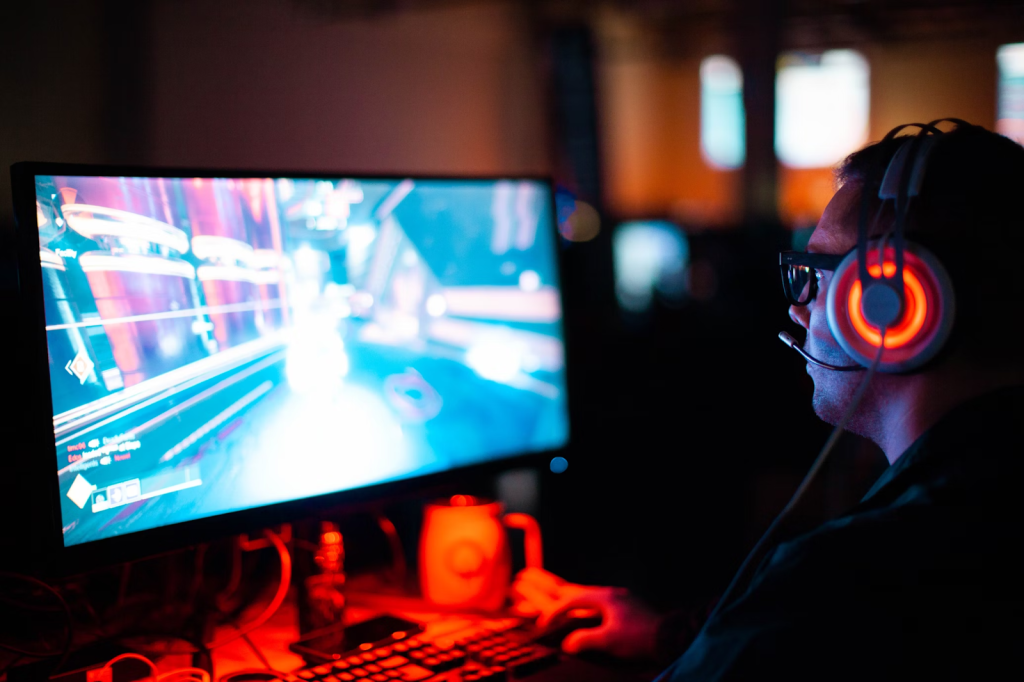In-game skins are no longer just decorative; they’ve become a crucial part of the gaming experience and economy, often representing status and rarity with real-world value. As blockchain technology advances, many are speculating whether Non-Fungible Tokens (NFTs) could revolutionize in-game skins by offering true ownership, cross-platform capabilities, and provable scarcity. This article delves into the potential of NFTs in gaming, exploring the benefits, rumors, and challenges of integrating blockchain technology with in-game content. Read on to find out what the future holds for skins in the evolving gaming landscape.
Currently, games like TF2, CS2, and Rust have built thriving economies around skins, allowing players to buy, sell, and trade these digital items. Major developers are now exploring NFTs, but what are the real implications? Could NFTs redefine in-game ownership, or are they just a passing trend? Let’s explore the current state of in-game skins, the buzz around NFTs, and the potential impact of this technology on gaming.

In-game skins are now a significant component of the gaming market. Skins are more than just decorative accessories; they can also be valuable in the real world and serve as status symbols and rarities.
Many players wonder if Non-Fungible Tokens (NFTs), which have gained popularity with blockchain technology, could eventually replace in-game skins. Let's investigate this topic and talk about this idea's advantages, rumors, and possible drawbacks.
The NFTs' underlying technology is blockchain. It is a decentralized digital ledger that tracks transactions across numerous computers without allowing the recorded data to be changed in the past.
In terms of gaming, this might entail clear, unchangeable records of who has what in-game content, ensuring that nothing can be faked or copied.
Current State of In-game Skins
In games like as TF2, CS2, and Rust, skins have become an essential component of the economy. Players can exchange, purchase, and sell skins for real money on Valve's Steam Marketplace. For instance, in Counter-Strike, unique skins can fetch thousands of dollars at auction, making them highly sought after by gamers and collectors.
Rust provides a comparable marketplace where users can customize the appearance of their weapons and equipment via skins. These skins add a sense of individuality and customization without changing the gameplay.
Rumors About NFTs and In-game Skins
There has been much conjecture that game producers may use blockchain technology to allow gamers to own in-game skins.

Rumors have been swirling that major titles may soon implement skin systems based on blockchain technology. This would enable users to buy CS2 skins through platforms that sell them for NFTs on decentralized marketplaces.
NFT skins are already being integrated into the ecosystems of numerous blockchain-based gaming projects despite neither Valve nor Facepunch having made any formal statements. One indication that major developers are starting to investigate the potential of NFTs in gaming is the fact that Ubisoft, for instance, has experimented with NFTs in their Quartz platform.
Benefits of NFTs in In-game Skins
True ownership is one of the key advantages of employing NFTs for in-game skins. If they were truly owned by blockchain, players might move their skins to other platforms, sell them outside of the Steam Marketplace, or even keep them if the game is no longer supported.
Another benefit is the potential for cross-platform and cross-game use. Consider utilizing a skin that you bought in Rust in another game, such as CS2, or even on different platforms and environments. NFTs, which store the skin's data on a blockchain that is open to many developers, could make this feasible.
Provable scarcity is another feature of NFTs, which means that everyone on the blockchain may transparently confirm an in-game item's rarity. Because of this transparency, rare skins may become even more valuable because it is possible to verify their scarcity and prevent developers or market forces from manipulating them.
Another advantage is that NFTs might allow developers to set up royalty schemes, in which they are paid a portion of every skin transfer or sale.
This would encourage game makers to continue thriving in-game economies and produce rare, distinctive skins. Gamers may also directly benefit from selling their uncommon skins on the open market, making gaming a more profitable venture for enthusiasts.
Challenges and Criticisms of NFTs in Gaming
The environmental impact of NFTs and blockchain technology is one of the main objections leveled at them. Many blockchains, especially those that use proof-of-work algorithms like Ethereum, need a significant amount of processing power, which leads to high energy consumption. But Ethereum is moving to proof-of-stake, which should cut energy use by more than 99% and allay worries about the environment in the long run.

Regulatory obstacles are another primary concern. Governments are still figuring out how to control NFTs and cryptocurrencies, so there's a chance that future legislation will restrict or outlaw specific blockchain gaming applications.
Furthermore, before NFTs are wholly incorporated into gaming in a fair and legally acceptable manner, problems like fraud, market manipulation, and intellectual property rights still need to be resolved.
One such difficulty is the pay-to-win conundrum. Some critics contend that if NFT-related skins begin to have actual value, gaming may become more and more commercialized, favoring players with greater resources. NFTs can potentially worsen player inequality in games where skins offer gameplay advantages, transforming free-to-play titles into pay-to-win environments.



